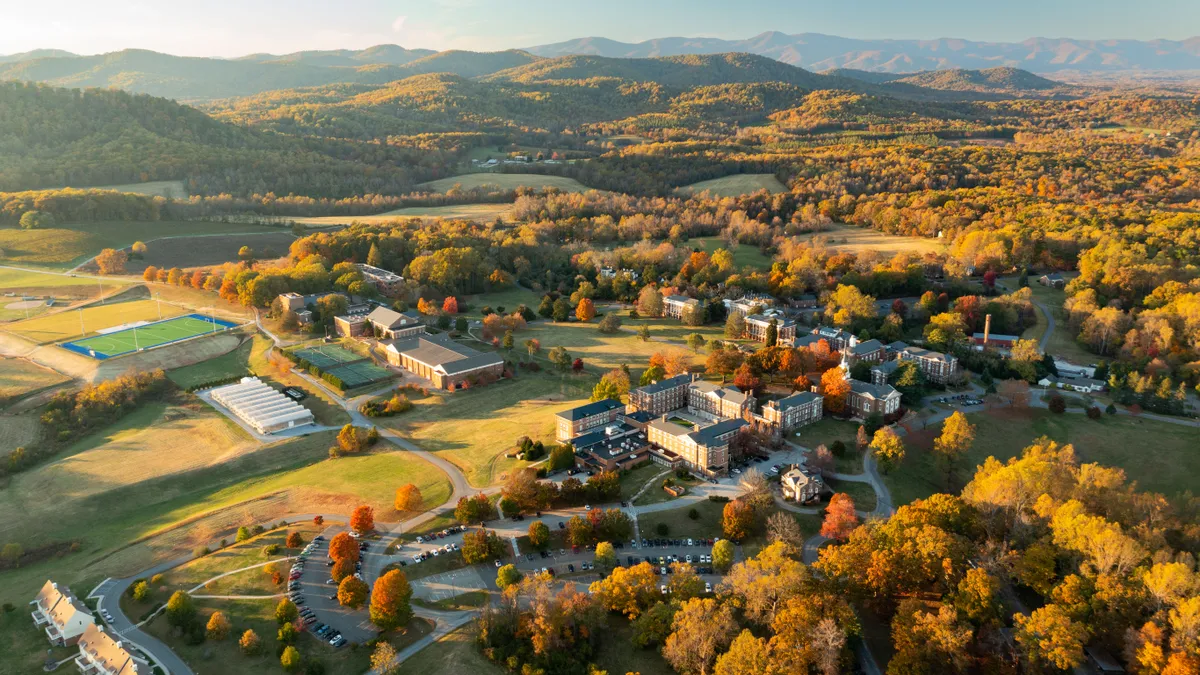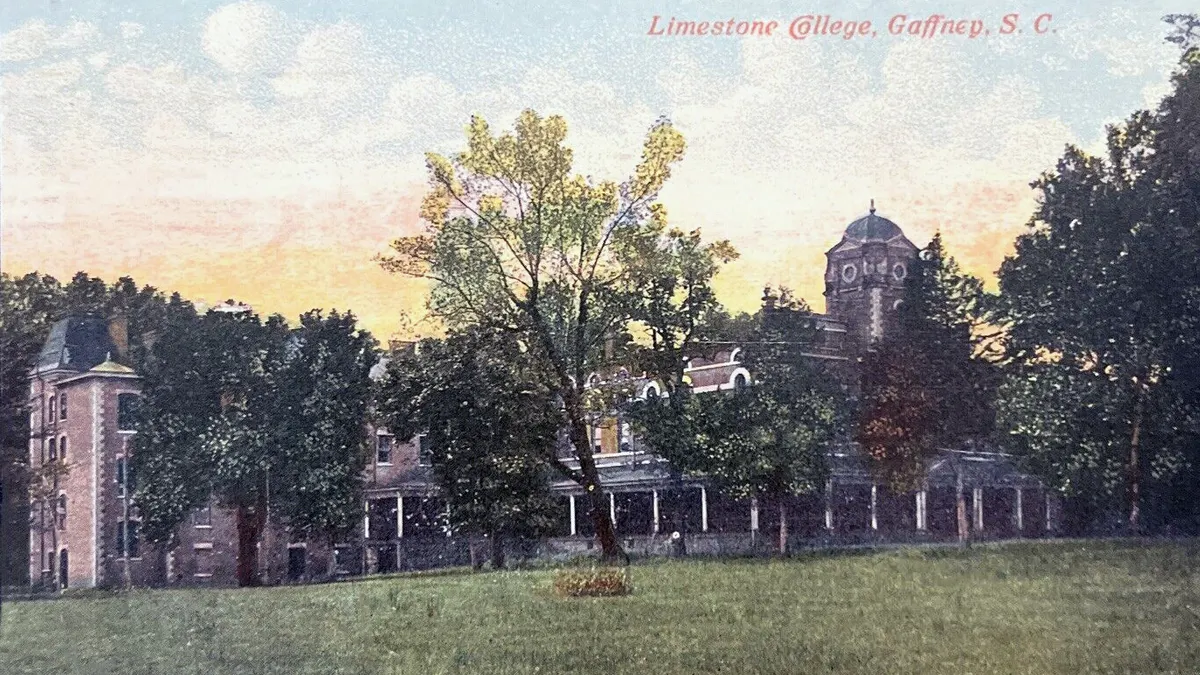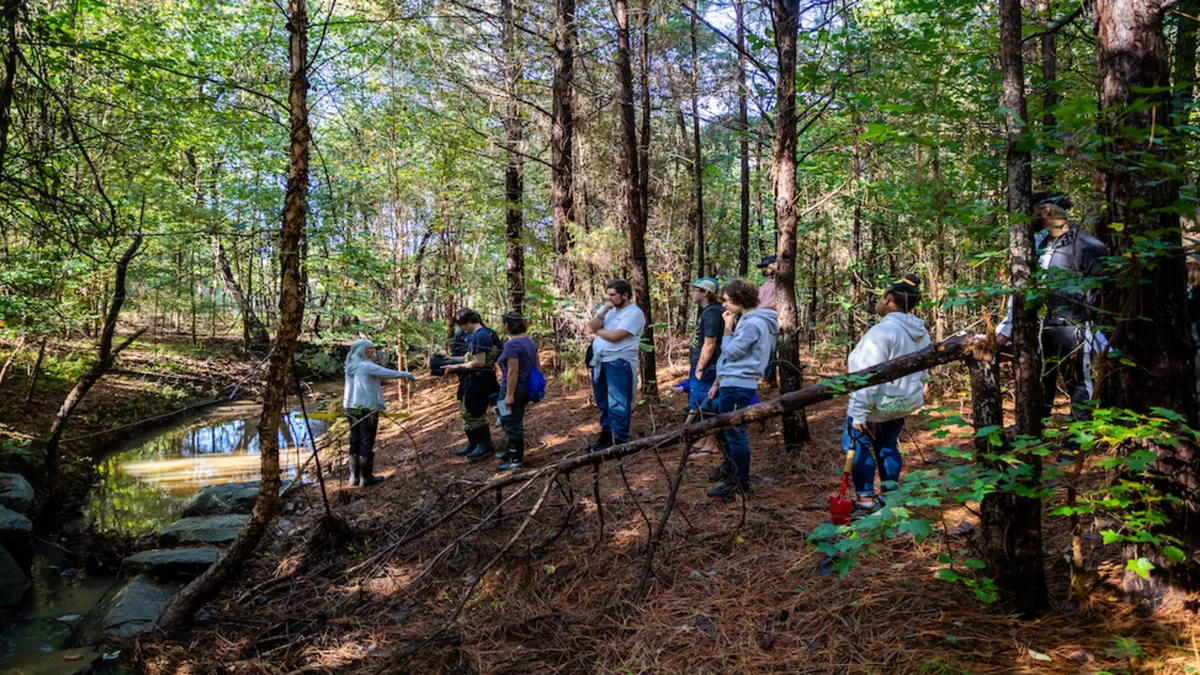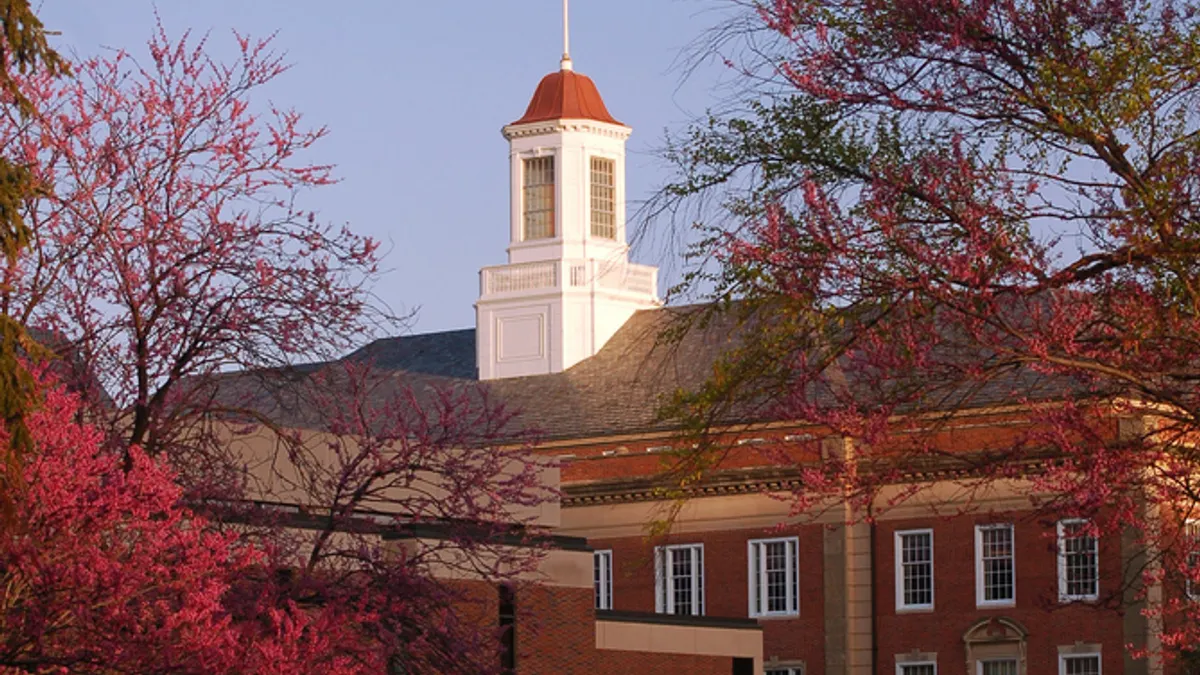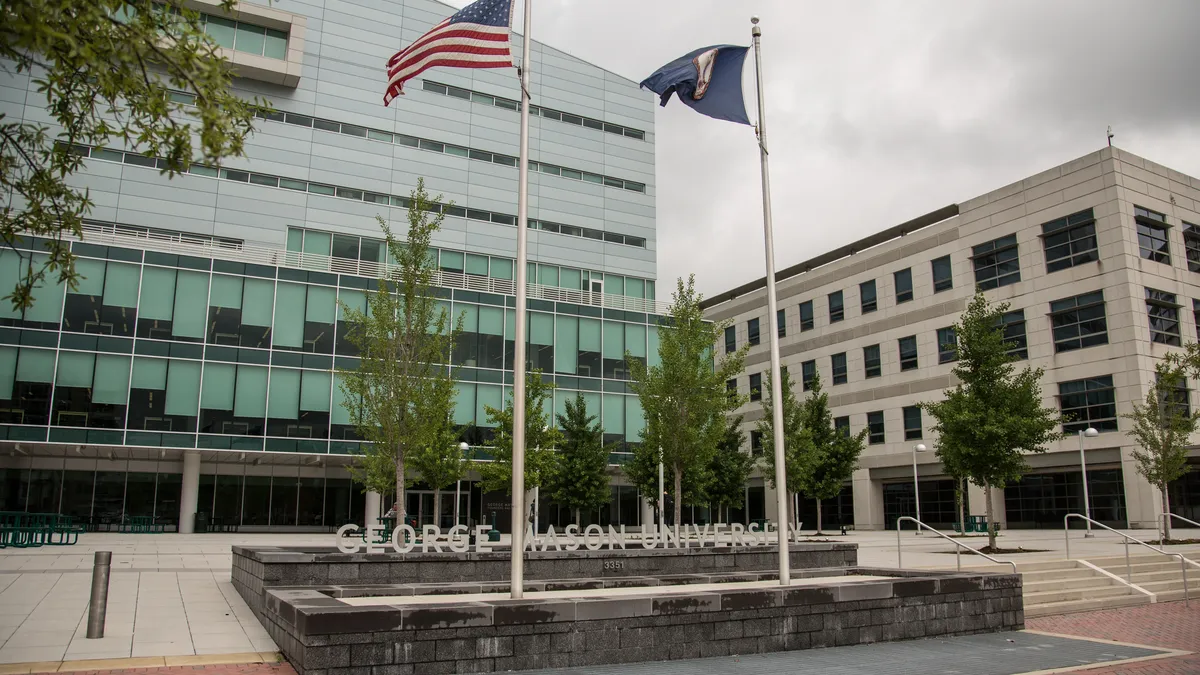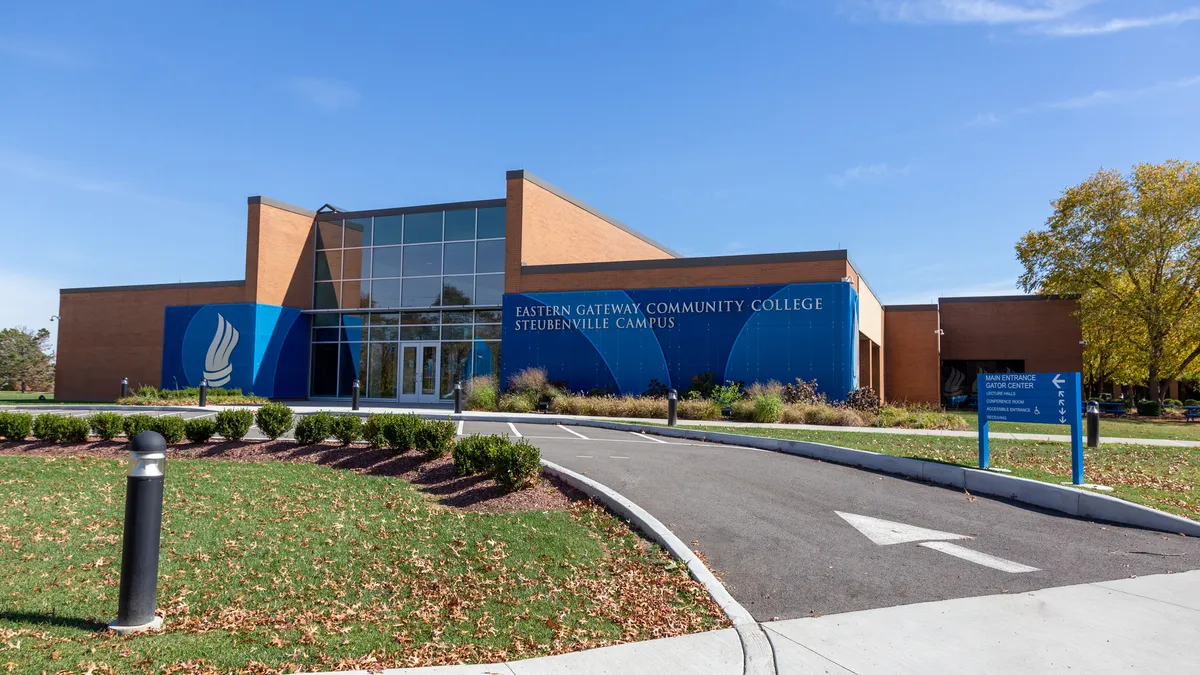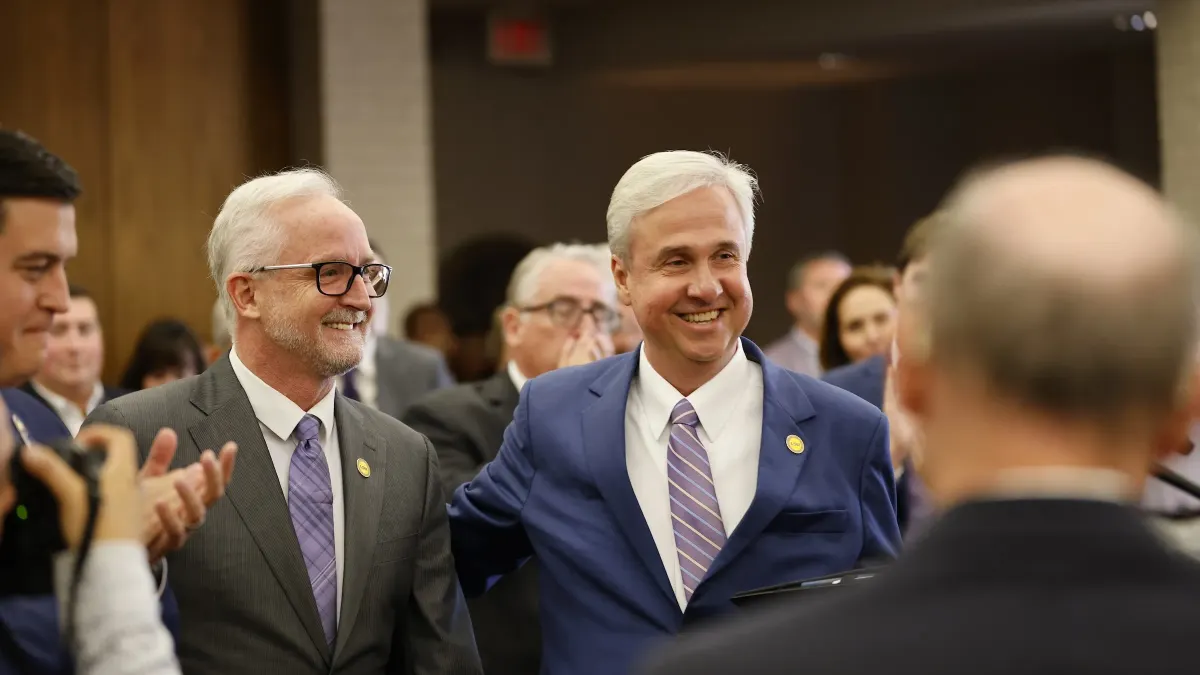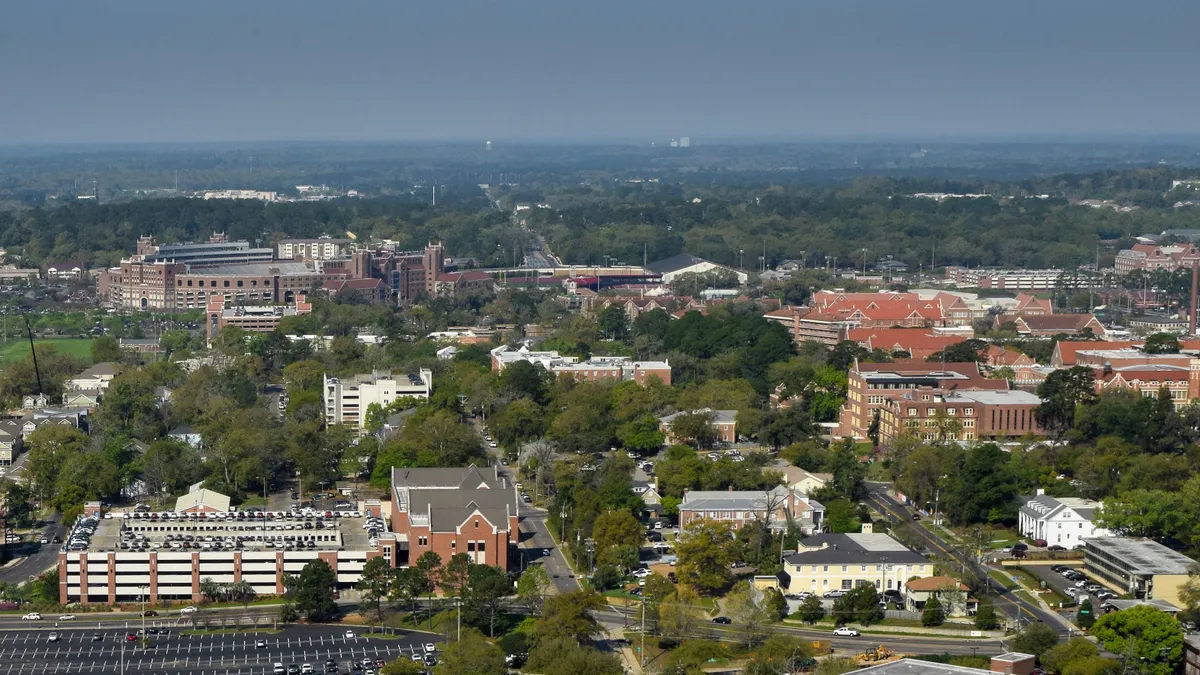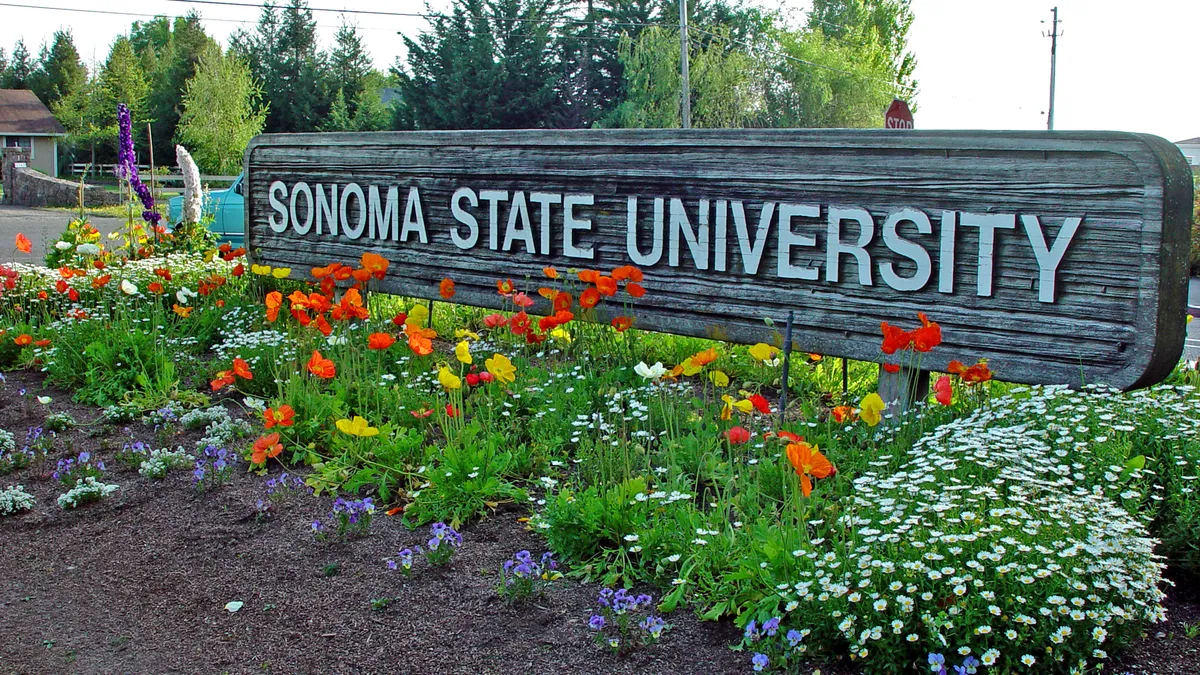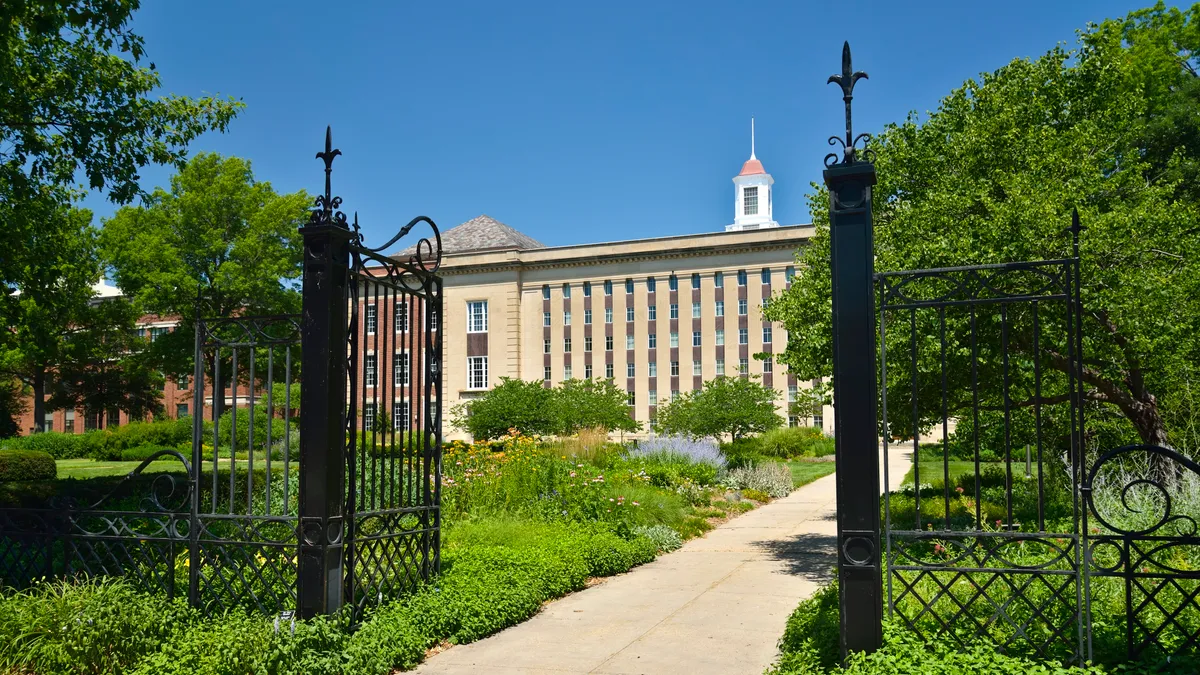When Meredith Woo took over as the president of Sweet Briar College in 2017, the nonprofit Virginia women’s institution was seen as a troubled place. Alumnae had wrestled the college back from the brink of closure, but it still faced financial issues, resulting in a warning from its accreditor.
Woo recently announced that she will be departing from her role as Sweet Briar’s president in spring 2024. She spoke with Higher Ed Dive about her tenure.
This interview has been edited for clarity and length.
HIGHER ED DIVE: When you took over as president, Sweet Briar was still in the news for a 2015 closure attempt, and there were some accreditation issues because of financial stress. I'm curious if you had any doubts coming into the role.
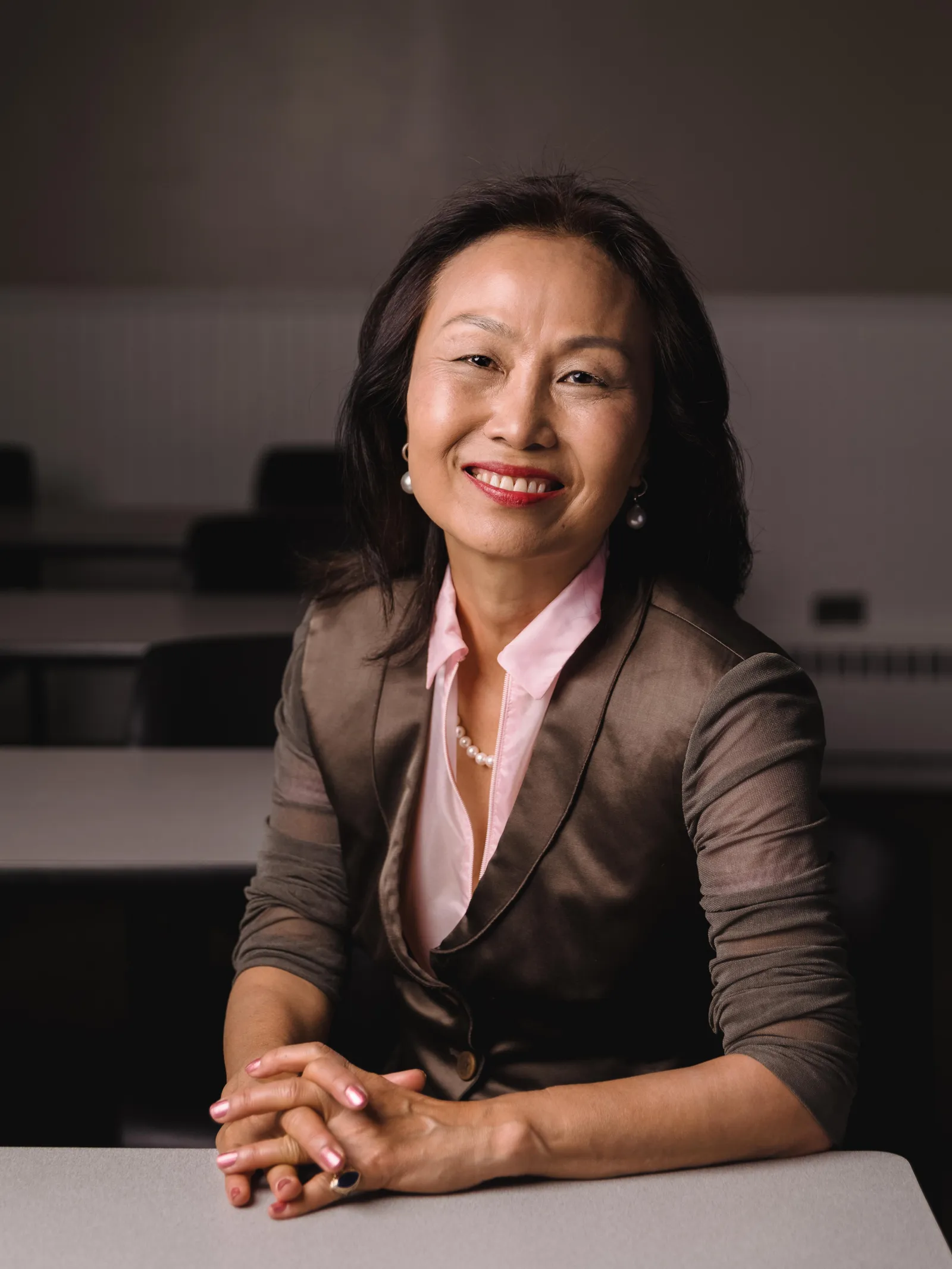
MEREDITH WOO: When I came here in 2017, I wish I could say that I did my due diligence, and that I had studied the finances, that I had studied the academics and all the institutional aspects of the college as well as I could, and made a sensible decision to lead the institution going forward. In fact, it wasn't like that. Because no matter how hard I tried to understand the situation of the college in 2017, it was not that easy to understand what was going on.
But to me, joining Sweet Briar, deciding to lead it, was an act of faith. Sweet Briar is not just a very fine college, but it has served for a very long time as a significant cultural, social and economic pillar for Central Virginia.
College is not simply a business enterprise or even a nonprofit entity. It really is a very important national treasure, oftentimes for the country. Sweet Briar fills a very important role in education of women. Today there are a lot of women on university campuses. In fact, there are more women than there are men in universities. But there is a role to be fulfilled by all-women's institutions, which provide truly empowering education for that small segment of women that could really benefit from it. And so for me, it was a belief that this institution has the right backbone, right building blocks, and that with some creativity and imagination, we can make it work.
And about that creativity and imagination: You made several changes to the college during your time as president, some that may have helped its longevity. What do you think were the most impactful changes?
One is the kind of change that is business-oriented, that is done immediately, in order to make ourselves sustainable. So the very first thing I did might be called a very comprehensive reset of the college — academically, financially and budgetarily.
Academically, this meant getting rid of all of our gen ed and creating a new kind of gen ed, in the form of a very tightly structured women’s leadership core curriculum that speaks to the excellence of the liberal arts, but being very much intentional in generating women leaders going forward through four years of very good education.
In order to attract students, we decided to change the regime of our finances. So instead of having a regime of very high sticker price, and very high discount rate, we decided to make our tuition very transparent, but also deploy more than 200 different endowment accounts for scholarships to provide reasonable merit scholarships for our students. And so that was a very radical change that entailed a tuition reset, of close to 40%, in terms of reduction in tuition, to make our tuition affordable.
When I first came here, we had less than 200 students. And we had 85 faculty members with 45 majors. And so we reduced the number of majors by half, and also made adjustments in faculty and staff size, in order to make it proportional or appropriate for the student body that we had. None of this was very easy.
The second set of changes were much more structural, and those consist of two things.
One was creating a five-year action plan, step by step, to try to accentuate things that Sweet Briar is or could be arguably better at than anybody else. And the other one was working on the infrastructure of the college.
For the five-year plan going forward, we emphasized five things that we can be truly distinguished in. One is the agenda of making our core with a leadership curriculum as good as it could be.
Two, to make our efforts with sustainability very cutting edge. And this is a very interesting thing, because Sweet Briar’s campus is arguably one of the most beautiful in the country.
The third thing is that we are the only engineering program fully ABET accredited, which only has women students in the classroom. In a classroom without misogyny and intimidation, our students thrive.
The fourth thing that Sweet Briar is really good at, we have the oldest equestrian program in the nation. By far the best equestrian program among liberal arts colleges. We are going to honor that legacy by building meaningful academic programs around it. So that it can be a program that's really comprehensive in terms of athletics, career paths, as well as academics.
And then finally, the effort to make Sweet Briar into a destination in Virginia and in the nation.
And while we're doing this, we also have not lost any time, especially during the pandemic, to invest in the buildings, infrastructure, and in the land. Sweet Briar College is one of the very rare colleges where the entire core of the campus is a National Register Historic District. We invested in creating 20 acres of vineyard, wildflower meadows, along with an apiary, and we created a 27,000-square-foot greenhouse, where women will learn how to produce the food that they consume.
Sweet Briar has had a very engaged alumnae network, and they were very active in fighting the 2015 closure attempt. What was it like working somewhere with such an engaged network of graduates?
It's fabulous. You know, a lot of people said, in the aftermath of 2015, that the kind of support and passion that the alumnae showed, and the amount of money they gave would very soon dissipate. That has not borne true.
The alumnae are absolutely excited about the future. And even as we go through a very long, stable transition, to the extent that one can talk about a stable transition, the alumnae are with us, they are gung-ho. It has been a really great privilege for me to work with such dedicated women.
You mentioned the academic restructuring. You halved the number of majors and made reductions in faculty. And you said that was challenging. Was there pushback to that plan while you were implementing it? And do you think it was the right thing to do?
Well, sometimes you do something not because it's right or wrong, but because you have to. And we were in a situation where we had no choice. Either we do this, or we weren't going to be viable. It's just not possible to sustain the kind of number of majors and the staff that we have with less than 200 students. But you sort of bank on the fact that you do this with as much intelligence as you can, with all the dedication and passion you have for the college. And then eventually, as the enrollment grows, we can also grow the rest of the staffing. And that's, in fact, what's happened.
Next fall, we'll have, roughly, about slightly north of 500 students coming in. And after that, I think that we will soon get to 600. Six-hundred is probably what Sweet Briar has always had as enrollment. And we'll probably take a deep pause and breath and ask ourselves, “Now, do we want to build one more dorm or not?”
Why are you leaving the position of president and where are you going?
I have loved being president of Sweet Briar College. And we have a very slow transition going forward. I will be here as long as needed, depending on the pace of the search for the new president. And I'm really not thinking about where I'm going. I'm completely focused 200% on my job and making sure that Sweet Briar is well situated.
I think it is really time for me to pass the baton to the next leader. As the prophet says in Ecclesiastes, “To all things, there is a season.” And I feel that this season has come for me to pass the great work on to the new president.

